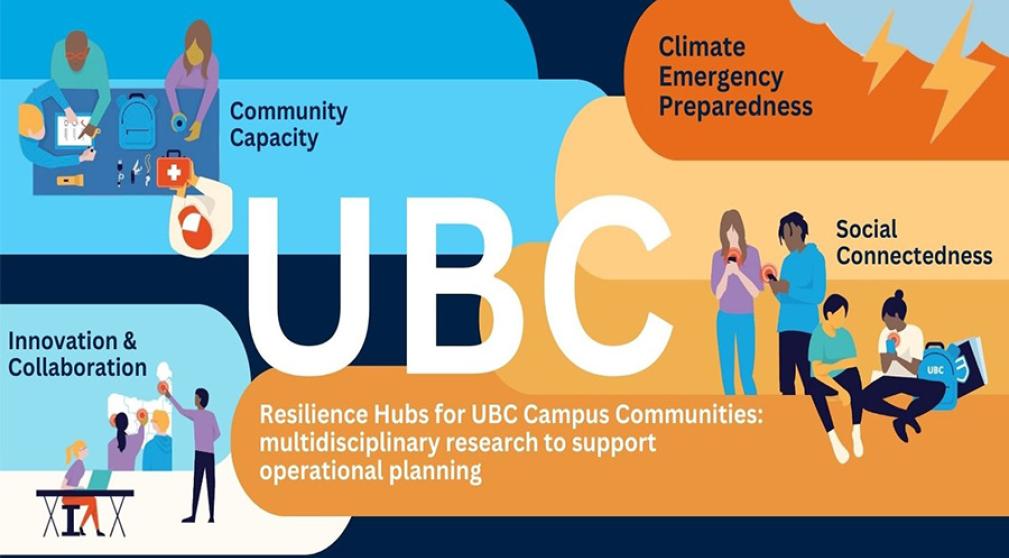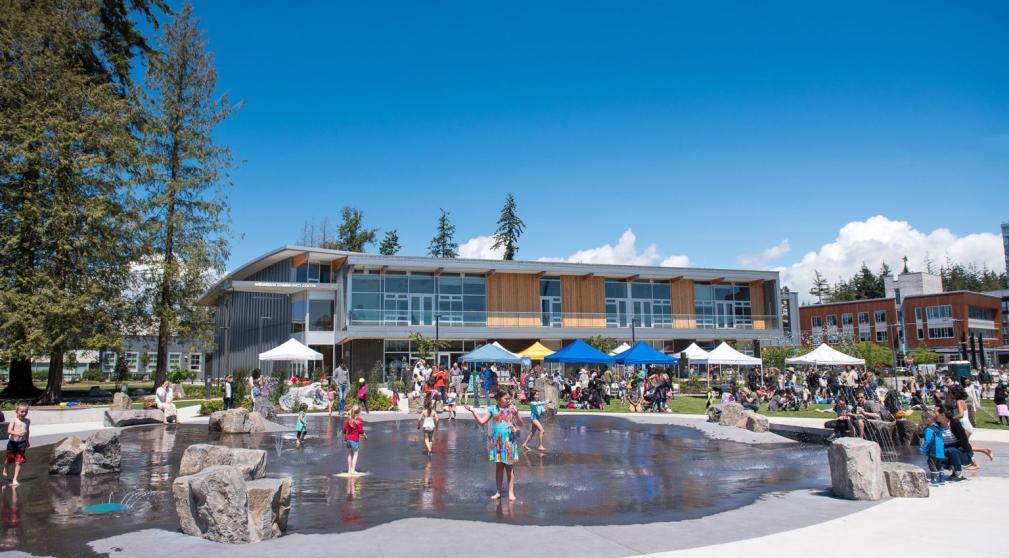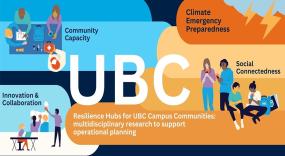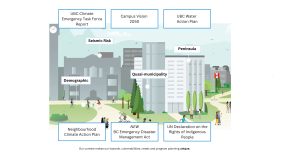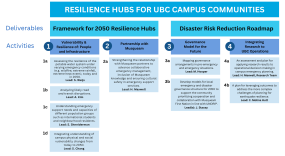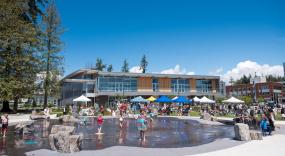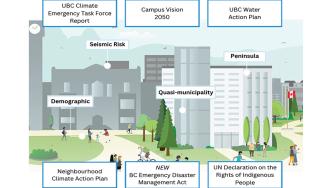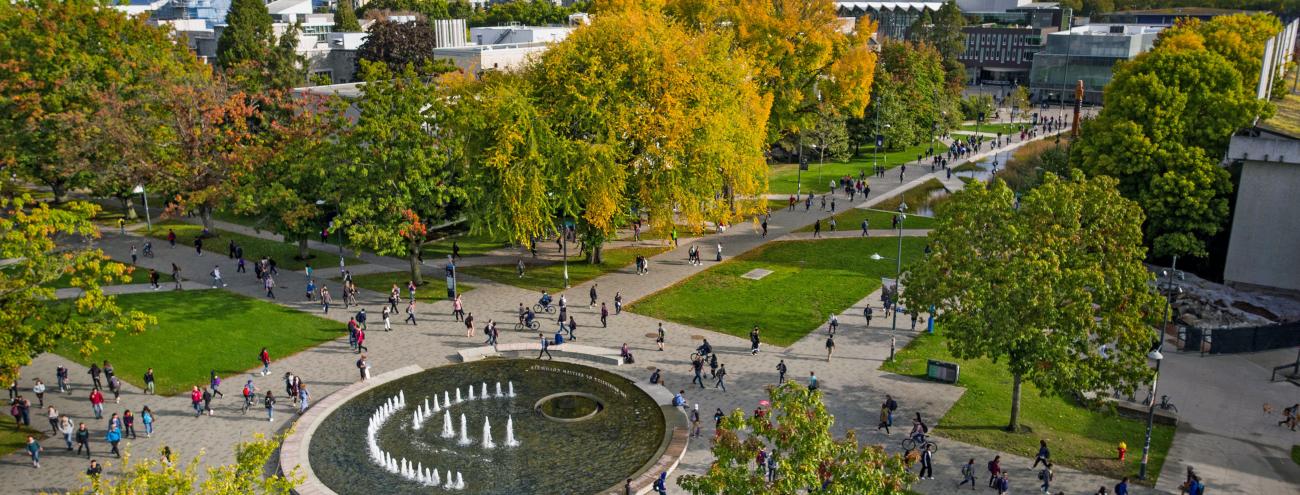
Resilience Hubs for UBC Campus Communities
This visionary project at UBC Vancouver focuses on enhancing campus resilience in response to climate hazards, aligning with the Campus Vision 2050 Plan. It will develop a resilience hub framework to strengthen community connections and emergency support, and create a disaster risk reduction roadmap to improve UBC’s operational response to climate emergencies.
(clickable thumbnails below)
Project Team
Faculty lead: Dr. Stephanie Chang, Professor, School of Community and Regional Planning (SCARP) and Institute for Resources, Environment and Sustainability (IRES)
Staff lead: Hailey Maxwell, Manager, Emergency Management & Continuity Planning, Safety & Risk Services
Co-lead: Dr. Steven Weijs, Associate Professor, Faculty of Applied Science, Department of Civil Engineering
It is becoming increasingly urgent for UBC to proactively prepare for climate change-related emergencies.
A growing campus community that needs to prepare for increasing climate threats
Extreme heat, extreme rainfall, and wildfire events have all caused substantial human and economic losses in BC in the last few years – and will pose increasing threats in the coming decades.
For the UBC Vancouver campus, preparing for climate emergencies must also align with the university’s long-term planning. According to the Campus Vision 2050 Plan, for example, UBC Vancouver’s daytime population is expected to grow by 25 percent (to 100,000 people) between 2023 and 2050, and neighbourhood housing units are anticipated to double. Evidence from other urban centers shows that resilience hubs can mitigate social vulnerability and provide essential services during climate emergencies, thus enhancing the adaptive capacity of rapidly growing communities1.
Resilience Hubs to provide emergency relief and build social connections
In this project, a multi-disciplinary research and operational team will be contributing to campus resilience planning for climate-related emergencies, specifically focusing on the idea of Resilience Hubs. A resilience hub is a community amenity with a dual purpose – in an emergency, it could serve as a cooling centre and provide emergency food and water; in non-emergency times, it is designed to build social connection, enhance well-being, and promote hazard awareness. Resilience hubs also address critical gaps in transportation by ensuring equitable access to emergency services and supplies, a key element for disaster preparedness2.
The project has two objectives:
-
To develop a Resilience Hub Framework to strengthen community connections and emergency support; and
-
To create a disaster risk reduction roadmap to improve UBC’s operational response to climate emergencies.
The team will develop new knowledge about physical infrastructure resilience (focusing on transportation and water), the emergency support needs of unique campus population groups (such as international students, campus neighbourhood residents), changes in physical and social vulnerability from today to 2050, emergency management governance arrangements, and pathways for collaborative emergency management and indigenous engagement.
Planning for future community needs in a disaster
The project will benefit UBC by developing the first comprehensive understanding of the multi-dimensional complexities of the climate emergency specifically for the Vancouver campus, connecting critical issues of physical infrastructure, social vulnerability and capacity, governance, and indigenous partnership.
The project will develop a framework for Resilience Hubs that is tailored to UBC Vancouver’s unique needs and community demographic. It will inform the strategic direction of campus emergency management, and it will strengthen the university’s emergency management partnerships with other jurisdictions on the Point Grey peninsula and across the Metro Vancouver region.
Media Articles
Unemori Architects Creates "earthquake-proof" community centre in Fukushima
